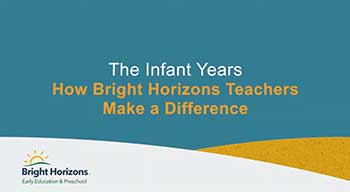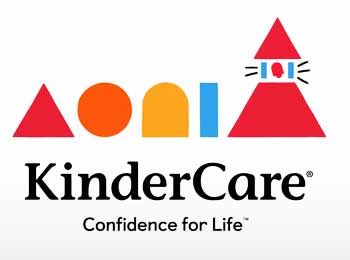Finding high-quality child care is one of the most important decisions a parent can make. Two of the largest child care providers in the United States are KinderCare and Bright Horizons.
While both offer educational programs and care for children ages 0-12, there are key differences parents should consider when choosing between KinderCare and Bright Horizons.
A Brief Comparison Table
| Category | KinderCare | Bright Horizons |
| Ages Served | 0-12 years | 0-12 years |
| Curriculum Approach | Play-based, child-guided | Academically focused with STEAM |
| Teacher Qualifications | 75% have ECE degrees/certificates | Lead teachers have college degrees |
| Tuition Rates | $200 – $300 per week | $300 – $500+ per week |
| Discounts Available | Sibling, military, some income-based | Sibling, employer-subsidized |
| Parent Resources | Daily sheets, conferences, app | Conferences, daily reports, app |
| Health & Safety | Protocols overseen by directors | Managed by health/safety managers |
| Accreditation | Learning centers accredited | Entire organization accredited |
| Differentiators | Conscious Discipline, blended preschools | Backup child care, life skills focus |
Overview Of KinderCare
Founded in 1969, KinderCare operates over 1,500 child care and early education centers across the country. KinderCare aims to nurture children’s curiosity through purposeful play and learning experiences.

Some key features of KinderCare include:
- Care for children ages 0-12
- Accredited educational programs from 6 weeks old through elementary school
- Interactive learning with STEM subjects and activities
- Focus on social-emotional development through Conscious Discipline
- Various curriculum options including school district partnerships
KinderCare centers are typically open 6:30am to 6:30pm to accommodate parent schedules. Some locations also offer evening care until midnight. The average teacher to student ratio is 1:4 for infants and 1:10 for preschool.
Overview Of Bright Horizons
Founded in 1986, Bright Horizons manages over 1,000 child care centers around the world. With a focus on education, Bright Horizons offers programs to enhance children’s development and promote school readiness.
Notable aspects of Bright Horizons include:

- Care for children ages 0-12
- Proprietary curriculum with STEAM learning
- Life readiness skills embedded in daily activities
- Strong community partnerships, including with hospitals and universities
- Work-life services for families such as backup care and educational advising
Bright Horizons centers are open typical daycare hours from 7am to 6pm. The average student-teacher ratio is 1:3 for infants and 1:6 for preschool.
Comparing Health And Safety
The top priority for any child care program is keeping children happy, healthy, and safe. Both KinderCare and Bright Horizons have robust health and safety protocols.
KinderCare implements the following standards:
- Daily health checks upon arrival
- Routine cleaning and sanitizing procedures
- Staff trained in CPR, first aid, and medication administration
- Secure facilities with keycard access
- Protocol enforcement by health and safety directors
Bright Horizons maintains these health and safety practices:
- Standard cleaning and disinfecting multiple times per day
- Daily health screenings during drop off
- Mandatory hand washing and other hygienic practices
- Staff certified in pediatric first aid and CPR
- Only allowing authorized adults to pick up children
- Oversight by health and safety managers
With rigorous training and safety measures in place, parents can feel secure in the care provided at both KinderCare and Bright Horizons.
Also Read: Comparison Between Kiddie Academy And KinderCare.
Evaluating Educational Programming
Learning and development are central to KinderCare and Bright Horizons. Both provide engaging programs run by educated teachers. However, there are some variations in their educational offerings.
KinderCare Education Approach
- Balanced learning with equal focus on academics, physical health, and social-emotional growth
- STEM-based learning through hands-on exploration and experiments
- Use of project-based learning and learning centers
- Customized lesson plans tailored to each child’s strengths and needs
- Interactive technology like Smart Boards in classrooms
- Priority placed on play-based learning for young children
Bright Horizons Education Approach
- Holistic proprietary curriculum focused on academic, social, emotional, and physical development
- Strong emphasis on STEAM (adding art) learning and critical thinking
- Life skills embedded in the daily routine like collaboration and problem-solving
- Learning activities tailored to children’s developmental stage
- Assessments to inform individualized instruction and track progress
- Interactive learning through Smart Boards, tablets, and virtual field trips
While both prioritize well-rounded development through technology and play-based activities, Bright Horizons places more emphasis on academics and life skills. KinderCare focuses slightly more on child-guided experiences.
Comparing Cost Of Care
One of the biggest factors families consider is cost. Child care represents a major expense, so it’s important to understand pricing models and available discounts.

KinderCare Tuition Information
- Rates vary by location ranging from approximately $200 – $300 per week
- Sibling discounts, military discounts, and subsidized care available
- Some employers offer discounted tuition or reimbursed accounts
- Part-time rates available for 2-3 days per week
Bright Horizons Tuition Information
- Rates range from $300 – $500+ per week based on location
- Sibling discounts and some scholarships available
- Employer tuition discounts frequently offered
- Required minimum 2 day per week enrollment
Bright Horizons tends to have higher tuition rates overall compared to KinderCare. However, they serve a large number of families employed at partner companies who receive tuition discounts. This makes Bright Horizons more affordable for some working parents.
Both providers encourage prospective families to inquire about current tuition rates and possible discounts at their desired location.
Teacher Qualifications And Training
The teachers caring for children each day have a significant impact on their development and safety. KinderCare and Bright Horizons invest heavily in staff training and look for qualified teachers.
KinderCare Teachers
- 75% of teachers have Early Childhood Education degrees or certificates
- Teachers receive at least 20 hours of in-person training annually
- Training emphasizes child development, learning frameworks, and curriculum
- Online and in-person professional development available
Also watch this video!
Bright Horizons Teachers
- Lead teachers have bachelor’s or associate’s degrees in ECE or a related field
- Assistant and substitute teachers have some college education
- New hires complete extensive onboarding and mentorship
- Ongoing training on child development, curriculum, and family partnerships
- Access to online development resources and training library
While both have education requirements for lead teachers, Bright Horizons requires a college degree which typically equates to higher teacher qualification.
Parent Engagement And Resources
Parent involvement and clear communication help ensure a smooth early education experience. KinderCare and Bright Horizons offer digital apps plus in-person events to connect parents with teachers.
KinderCare Parent Resources
- KinderCare app for photos, activity updates, messaging teachers -Daily sheets detailing meals, activities, need-to-knows -Family events like talent shows, fun runs, community service days -Parent-teacher conferences and informal discussions
Bright Horizons Parent Offerings
- MyBrightDay app with photos, alerts, and child observations
- Electronic daily reports on meals, sleep, activities
- Family engagement events and volunteer opportunities
- Conferences twice per year plus ongoing parent-teacher contact
Both maintain an open door policy for parents to get involved in the classrooms. Bright Horizons offers the added benefit of backup child care for when regular care falls through. This perk provides working parents peace of mind.
Also Read: Is Bright Horizons Better Than Primrose Schools?
Frequently Asked Questions (FAQ)
In 2013, there were reports alleging teachers at some Bright Horizons locations were abusing children in their care. However, these cases could not be substantiated and appeared to be false accusations made by a former disgruntled employee.
Bright Horizons thoroughly investigated all claims and no evidence of widespread abuse was found. They maintain strict teacher oversight and security protocols.
A core aspect that makes KinderCare unique is their child-guided learning philosophy focused on exploration. Their proprietary Conscious Discipline system emphasizes social-emotional learning. KinderCare also offers more blended preschool and daycare options compared to some competitors.
In New York City, Bright Horizons has tiered pricing based on student age. According to 2023 information shared on their website:
Infants (6 weeks to 18 months): $2,850/month
Toddlers (18 months to 3 years): $2,600/month
Preschool (3 to 5 years): $2,150/month
These represent the highest rates in the country due to the NYC market. Discounts may apply for families working at partner employers.
Bright Horizons Family Solutions is the full name of the Bright Horizons corporation. They provide child care, early education, back-up care, educational advising, and other workplace services for families. The “family solutions” refers to their mission to offer tools and resources working parents need to balance family and career.
Pros:
Play-based, child-directed learning
Strong focus on social-emotional development
Interactive technology integrated in classrooms
Lower cost than competitors in many areas
Cons:
Mixed reviews on curriculum structure
Safety protocols lacking at some locations
Less focus on academic preparation than competitors
Less standardized teacher qualification requirements
Pros:
Strong academic curriculum with STEAM focus
College degree required for lead teachers
Tuition discounts through employer partnerships
Work-life benefits like back-up child care
Cons:
Premium pricing at most centers
High teacher turnover rate at some locations
Heavy focus on academic skills for young children
Difficult to get a spot without an employer agreement
The Verdict
When comparing KinderCare and Bright Horizons, there are trade-offs to weigh. Key factors like curriculum, teacher qualifications, safety procedures, and tuition pricing help determine which program is the best fit.
KinderCare offers a play-based learning approach at more affordable rates overall. Bright Horizons emphasizes academics and has strong employer partnerships to reduce the cost of care.
Parents should schedule facility tours and interviews to get a feel for the environment and staff at potential schools. Visit at different times of day to see the programming in action. Inquire about open communication policies.
Above all, observe how your child responds to the setting. Finding the right care is based on your family’s specific preferences and budget.
